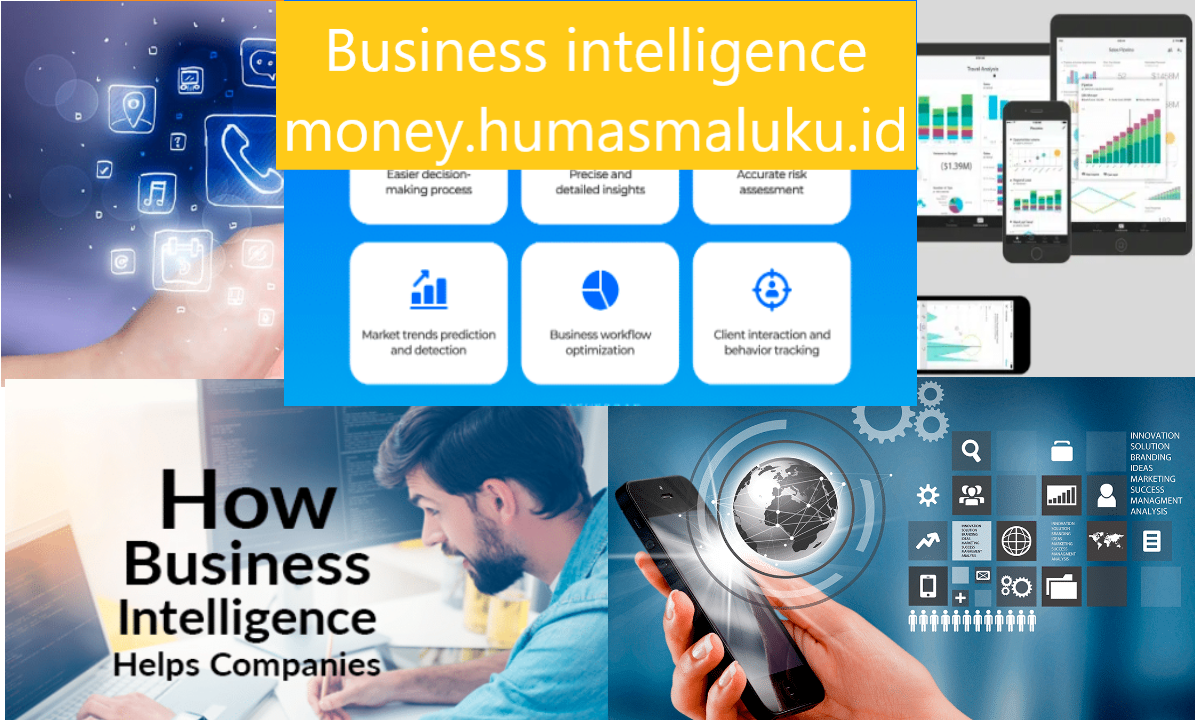Business intelligence money.humasmaluku.id

Sbbal / Business intelligence money.humasmaluku.id
Business intelligence money.humasmaluku.id
money.humasmaluku.id – Discover the essential steps to building a successful business intelligence strategy. This comprehensive guide reveals the secrets to leveraging data to grow, make informed decisions, and gain a competitive advantage.
Explore key aspects such as data collection, analysis, visualization, and execution to transform your organization into a data-driven powerhouse.
introduction
In today’s rapidly evolving business landscape, harnessing the power of data has become critical for organizations aiming to thrive. Building a successful business intelligence strategy enables companies to leverage their data to make informed decisions, gain valuable insights, and uncover new opportunities.
In this article, we will explore the essential elements required to build a robust and effective business intelligence framework. From data collection and analysis to visualization and implementation, we will delve into the intricacies of a data-driven approach.
So, let’s embark on this transformational journey and reveal the secrets to building a successful business intelligence strategy! Business intelligence money.humasmaluku.id
Set your goals
Before delving into the technical aspects of building a business intelligence system, it is essential to clearly define your goals. Ask yourself: What are the goals of your organization? What specific outcomes are you hoping to achieve through business intelligence? By aligning your business intelligence strategy with your overall goals, you set the stage for success.
Collect relevant data
The cornerstone of any effective business intelligence strategy is the data it contains. Start by identifying data sources relevant to your goals. This may include internal databases, customer feedback, market research, or external data providers. Ensure that the data you collect is accurate, reliable, and comprehensive, as it will be the basis for your analysis and decision-making.
Create data management
Maintaining data integrity and security is extremely important when building a successful business intelligence system. Establishing strong data management practices ensures that your data is trustworthy, consistent and compliant with relevant regulations. Implement data access controls, determine data ownership, and regularly audit data processes to reduce risk and increase data quality.
Implement data-driven decision making
Building a successful business intelligence framework goes beyond collecting and analyzing data; It entails implementing data-driven decision-making processes. Ensure that insights from your business intelligence system are integrated into your organization’s decision-making workflow. Promote a data-driven culture, where decisions are evidence-based and backed by quantitative analysis.
Constantly monitoring and adapting
Business intelligence is an ongoing process that requires constant monitoring and adaptation. Regularly evaluate the effectiveness of your business intelligence strategy, track key performance indicators (KPIs), and make necessary adjustments to meet emerging challenges or take advantage of new opportunities. Embrace a culture of continuous improvement to ensure your business intelligence system remains relevant and impactful.
Benefits of Mobile Business Intelligence: Unlocking the Data
money.humasmaluku.id – Discover the amazing benefits of mobile business intelligence and how it enables organizations to harness the power of data anytime, anywhere. Unleash your business potential with this game-changing technology. Business intelligence money.humasmaluku.id
Benefits of mobile business intelligence
Mobile business intelligence offers a plethora of benefits that can change the way businesses operate and thrive. Let’s explore some of the key benefits:
1. Real-time Decision Making: Stay ahead of the curve
In a rapidly evolving business landscape, staying ahead of the curve is crucial. With mobile business intelligence, decision makers can access real-time data and make informed decisions on the go. Whether it is analyzing sales figures, monitoring market trends, or assessing customer behavior, instant access to data enables organizations to quickly and proactively respond to emerging opportunities.
2. Improve productivity: Work smarter, not harder
Gone are the days of being chained to a desk or desk. Mobile business intelligence enables professionals to access critical insights anytime, anywhere, improving productivity. With the ability to collaborate, analyze data, and generate reports on the go, teams can work smarter, maximize efficiency, and drive results without being locked into a traditional office environment.
3. Seamless Data Integration: Connect, Merge, and Simplify
Merging data from multiple sources can be a daunting task. Mobile Business Intelligence simplifies this process by seamlessly connecting and integrating data from various platforms and databases. This integration eliminates data silos, allowing a comprehensive view of the organization’s performance and facilitating accurate decision-making.
Big Data Tools for Small Business: Revolutionizing Success
money.humasmaluku.id – In today’s fast-paced, data-driven world, small business big data tools face the constant challenge of making informed decisions that will drive their success.
Fortunately, the advent of big data tools has changed the landscape, giving small businesses the ability to harness the power of data to fuel growth, streamline operations, and gain a competitive advantage.
In this article, we will delve into the field of big data tools for small businesses, explore their potential and uncover key solutions that can propel your business into the future.
Essential big data tools for small business
Now that we understand the transformative power of big data, let’s explore some key tools that can help small businesses leverage data effectively.
1. Data management tools: Organize the clutter
Data management tools are the foundation of any successful big data strategy. These tools allow companies to efficiently collect, store, organize, and manage their data. Whether it’s cloud-based solutions, data warehouses or data lakes, investing in powerful data management tools ensures that companies have a central repository of their data, making it easily accessible for analysis and decision making.
2. Predictive analytics tools: predict the future
Predictive analytics tools enable companies to predict future outcomes based on historical data. These tools use machine learning algorithms and statistical modeling techniques to identify patterns and make accurate predictions. For small businesses, predictive analytics can be a game-changer, providing insights into customer behavior, forecasting demand, and assessing risk. By anticipating trends and customer preferences, small businesses can make proactive decisions and stay ahead of the competition.
3. Customer Relationship Management (CRM) Tools: Personalize the experience
For small businesses, building strong customer relationships is crucial. CRM tools help streamline interactions, collect customer data, and provide a personalized experience. With built-in big data capabilities, CRM tools can analyze customer behavior, preferences, and feedback to customize marketing campaigns, improve customer service, and increase customer loyalty. By harnessing the power of CRM tools, small businesses can create meaningful connections and boost customer satisfaction.
4. Social Media Monitoring Tools: Unveil brand sentiment
In the age of social media, understanding brand sentiment is crucial. Social media monitoring tools allow companies to track mentions, analyze sentiment, and gain real-time insights into customer perceptions. For small businesses, these tools provide a direct window into customer feedback, enabling them to promptly address concerns, identify brand advocates, and align their marketing strategies accordingly.
5. Data Visualization Tools: Paint a clear picture
Data visualization tools transform complex data into visually appealing, easy-to-understand formats. With interactive charts, graphs, and graphs, small businesses can present data in a compelling way, facilitating better decision-making and communication. With the power of visualization, companies can identify trends, identify outliers, share insights across teams, and foster a data-driven culture.
6. Cloud computing solutions: scale agilely
Cloud computing has revolutionized the way businesses operate, providing cost-effective and scalable solutions. For small businesses, cloud-based big data tools provide flexibility, access, and seamless collaboration. With cloud infrastructure, companies can store, process, and analyze massive amounts of data without the need for large upfront investments. This enables smaller companies to compete with their larger peers and benefit from big data without exhausting their resources.

